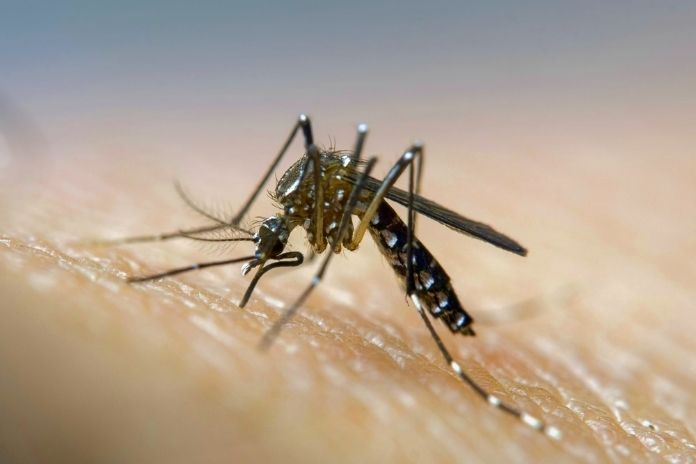The beginning of summer not only brings the first warm days of the year – all kinds of insect bites are lurking in the fresh air. They can cause unpleasant pain and skin reactions in a short time. The symptoms are usually harmless, but you should consult a doctor if in doubt.
Whether in the garden, on a bike tour or even in the bedroom – with the beginning of the warm season, biting insects are lurking almost everywhere. Wasps, bees and mosquitoes are particularly common.
The insects usually trigger harmless skin reactions in humans, caused by proteins in the insect’s saliva or by poison.
However, in rare cases, a sting or bite will also lead to a severe allergic reaction or shock – and should be treated by a doctor.
Insect Bites Are Usually Harmless
In summer, the mosquito is probably one of the most unpleasant insects, but its bite is harmless to most people. Although mosquitoes can transmit various diseases and tropical pathogens, the risk is currently relatively low. The bites usually only cause a wheal or reddening of the skin on the affected area.
The sting of a bee or wasp, on the other hand, is much more painful than the bite of a mosquito. The insects transfer their venom into the skin via their stingers when they sting. The sting usually gets stuck in the skin and should be removed as soon as possible.
The effect of the poison is expressed in the affected area by pain, redness and swelling. However, after just 24 hours, the relief of the symptoms begins – if this is not the case, a doctor should examine the affected area.
Home Remedies Relieve Symptoms
There are several home remedies you can use to relieve the symptoms of a sting or bite. A highly effective method is the application of concentrated heat. Scientists examined 146 subjects for the reaction of bee, wasp and mosquito stings.
The application of heat showed a reduction in swelling and pain in all subjects after only a few minutes, so the symptoms were relieved entirely after 10 minutes at most.
In case of itching, a cold compress is recommended. The constriction of the blood vessels also reduces the skin reaction caused by the sting.
Another option is to use antihistamines in the form of creams. They reduce the release of messenger substances that cause the symptoms and can thus minimize itching, reddening of the skin and swelling.
But regardless of how uncomfortable the symptoms are, the affected area should not be scratched. The open wound is a target for viruses and bacteria, which can lead to severe inflammation in the worst case.
ALSO READ: SUN ALLERGY: HOW TO PREVENT, PROTECT, AND TREAT IT
In Severe Reactions To The Doctor
In 1.2 to 3.5 per cent, an insect bite can cause more severe reactions – in an allergic reaction, the sting of a bee or wasp not only affects the skin but also other organ systems.
The consequences of an allergic shock can be respiratory problems, cardiovascular problems or loss of consciousness. In this case, an emergency doctor should be called immediately since an allergic shock can be fatal in the worst case.
When contact with an insect bite goes beyond an unpleasant skin reaction, those affected should consult a doctor to avoid possible late responses. Specific immunotherapy can prevent such a severe reaction in the future.
Preventive Measures Reduce The Risk Of Stinging
In the house’s interior, it is advisable to attach mosquito nets to the windows. They prevent more giant insects such as bees, wasps or mosquitoes from entering. Doors and windows should remain closed most of the day.
When out in the fresh air, proper skin covering and clothing can protect against possible stings and bites – especially if you are sensitive to insect bites.
It would be best if you also were particularly careful when drinking from an open container: A sting in the mouth or throat can be extremely dangerous even without an allergy, as the airways swell up within a short time.

